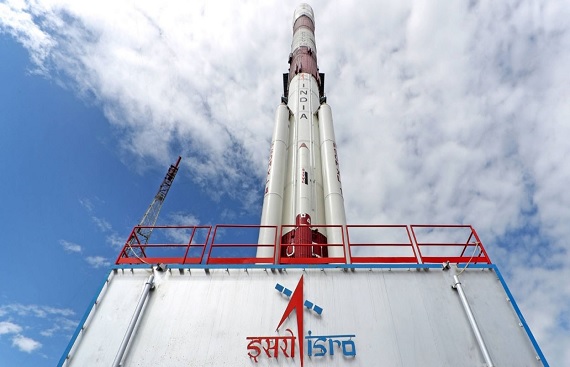ISRO Develops ECLSS for Gaganyaan After International Setback
By
siliconindia | Thursday, 14 December 2023, 03:54 Hrs

The Chairman of ISRO, S Somanath, announced that the space agency will internally develop the Environmental Control and Life Support System (ECLSS) for the upcoming Gaganyaan human spaceflight mission. This decision was made after attempts to procure the system from other countries were unsuccessful. The Gaganyaan project aims to showcase ISRO's human spaceflight capabilities by sending a crew into orbit at 400 km and safely returning them to Earth by landing in Indian sea waters. The mission is scheduled for launch in 2025.
"We have no experience in developing an environmental control life support system. We were only designing rockets and satellites. We thought that this knowledge would come from other nations, but unfortunately, after so much discussion, nobody is willing to give it to us", Somanath said. Speaking at the 5th edition of Manohar Parrikar Vidnyan Mahotsav 2023 in Dona Paula, organized by Goa's Science, Environment, and Technology Department, S Somanath, the Chairman of ISRO, announced that the space agency has opted to domestically develop the Environmental Control and Life Support System (ECLSS).
"We are going to develop it in India using the knowledge we have and using the industries that we have", he said. Speaking about the challenges before the Gaganyaan programme, he said India has been into knowledge-building design capability development over the last so many years and the pinnacle of this is going to be the Indian human space flight programme. "When we send humans to space through our Gaganyan programme, I think the amount of skill and confidence that we need to have has to be higher than what we currently have", he said.
Somanath mentioned that the confidence-building process is underway throughout ISRO, facilitated by the collaboration with national laboratories. The initial phase of the Gaganyaan program focuses on the development of the rocket. "The rockets are always bound to fail; whenever it is ready for launch our tension and heartbeats go up because even if the rocket is built very safely having all the processes followed, something can still go wrong. And if it goes wrong, then there is nobody who is able to correct it or adjust it. Thousands of elements should work without any flaw to make a launch happen", he said. Somanath said that there is always a risk of failure.
Somanath remarked that the younger generation comprehends the concept of intelligence and the process of instilling intelligence in machinery through sensors, data processing, and artificial intelligence. This leads to the generation of signals of diverse types, ultimately aiding in determining whether a rocket will safely launch or face failure. He emphasized that in the event of failure, a decision must be made within a fraction of a second. "Then you have to tell the rocket that you are going to fail now and you better abort even before failure happens. This is a challenge of working on intelligence in the rocket and we are working on such technologies today, looking at the data which is available in measurements and then making a synthesis of it", he said. Somanath said that ISRO was developing many new technologies to handle human space flight.
